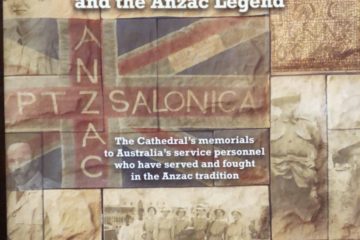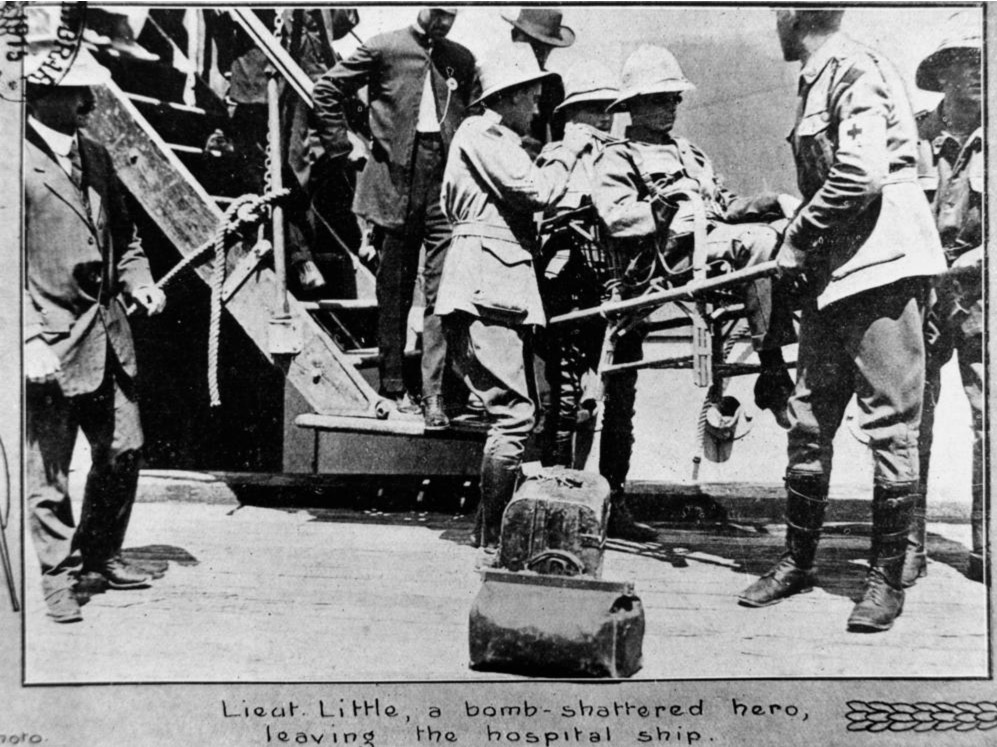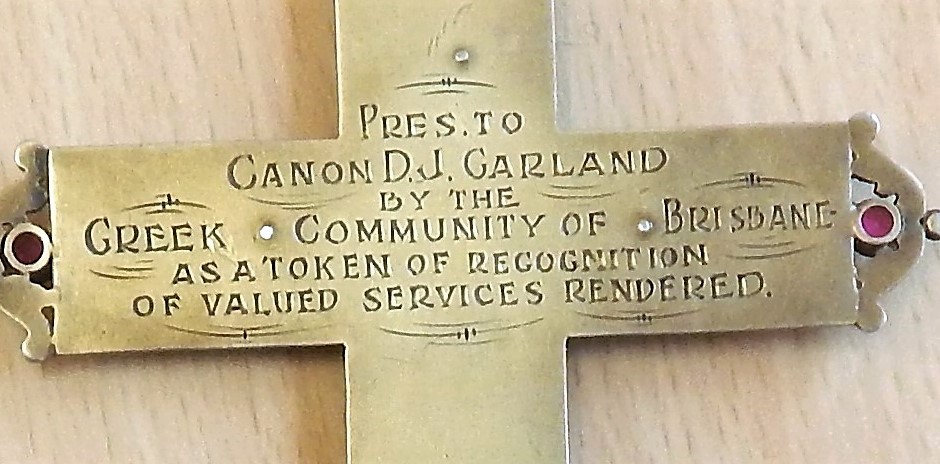Egyptian rebellion incidents
CHAPLAIN GARLAND.
INCIDENTS OF EGYPTIAN REBELLION.
WHEN a “Daily Mail” representative found Chaplain-Colonel Garland, V.D. [ David John Garland, Volunteer Detachment ], who returned to Brisbane on Tuesday [ 9 September 1919 ], after an absence of about two years in Egypt, Palestine and Syria, he was very busily engaged and carried on a conversation while attending to other duties.
He had just held a service in The Anzac Club war chapel, which was nearly filled.
His son [ David James Garland ], a returned soldier, served at the altar, and Rev. W.J. Gerrard [ William John Gerrard ] was the Assistant Priest.
After the service, members of the Soldiers’ Church of England Help Society (of which he is the founder and director) had morning tea as an informal welcome to him.
Then followed an inspection of The Anzac Club, and afterwards the workers and returned men shook hands and had a chat with their chaplain-colonel.
Chaplain-Colonel Garland established clubs for the troops is Cairo, Port Said, Moascar, Ismailia, Homs, Aleppo and Jerusalem, and a houseboat on the Nile for convalescents.
He supplied a large number of marquees to units, and did much else for the comfort of the men.
Asked his opinion of the Light Horsemen, he said, “No praise can be too great for the work of the Australians in the Great War.
“Over and over again they had been used as shock troops or held in reserve; for important and dangerous engagements.
“I do not want to depreciate others or make comparisons, and I am quite ready to criticise our own men where criticism is just, yet notwithstanding this, I am satisfied the Australians were excelled by none.”
He is very emphatic that the articles about the Australians’ misconduct are all exaggerated.
Their behaviour, he says, compared favourably with that of any other troops, and on one occasion, at least, the Australian troops rendered valuable assistance to the British authorities to keep order amongst other troops, and for this they received the thanks of the highest authority.
“During the recent rebellion in Egypt they did magnificent work,” he continued.
“They were just of the manner born, and, strange to say, while the Egyptians feared them, they learned in the end to almost love them.
“The rebellion was a serious thing. In my own case, I had to go to service in Cairo in an armoured car which was attended by a guard.
“The white women and children were removed to compounds, which were surrounded by heavily armed guards.
“That the rebellion was serious was shown by the fact that the Christians, Jews and Moslems joined together — natural enemies though they were.
“The Cross, the Crescent and the Shield of David were embroidered on the same banner— an unprecedented event in history.
“The rebellion was checked in time, however, and the British banner continued to fly over Cairo.”
Chaplain-Colonel Garland said he was greatly impressed with the splendid work of the Society during his absence.
While he always believed in the Society, what had been accomplished had exceeded even his faith in it.
At the Residential Club the previous night boys were sleeping on the floor, the place was so crowded while the Club itself during the morning was full of boys.
Plenty of women workers were on the premises. He wished to say of the women that nobody could accuse them of being easily tired, for he found among them those who had been working when he went away.
With them were new workers, whom he welcomed.
Evidently the Society was filling a want which the boys themselves appreciated, and he was sure it would continue so lone as the returned soldier cared to avail himself of its services.
— from page 10 of “The Daily Mail” (Brisbane) of 13 September 1919.
PICTURED ABOVE: The last contingents of Australian Light Horse Regiments left stationed in Egypt were tasked with containing a popular uprising of local citizens in 1919. This image appeared on page 27 of the “The Queenslander Pictorial, Supplement to The Queenslander” of 30 August 1919. The caption reads: “A souvenir of the disturbances in Egypt. This photograph was taken (by No. 1160, Middlesex-born Gallipoli veteran, Trooper Albert John Frisby of the 5th Light Horse Regiment) during the recent attempt to organise a rebellion in Egypt, when Australian Light Horsemen were escorting the trains. Trooper Alfred Benny [ No. 2254A, 5th Light Horse Regiment ], of Clermont (Queensland) is shown on the engine. He formed one of the party guarding the train.”


